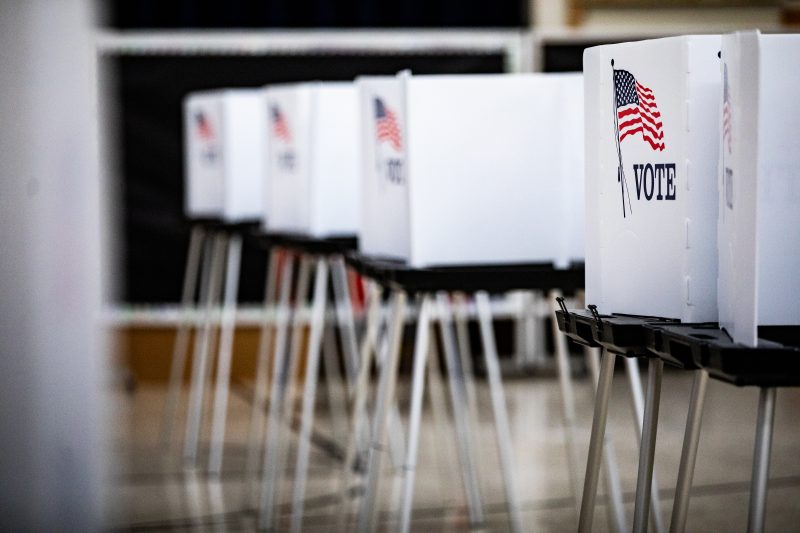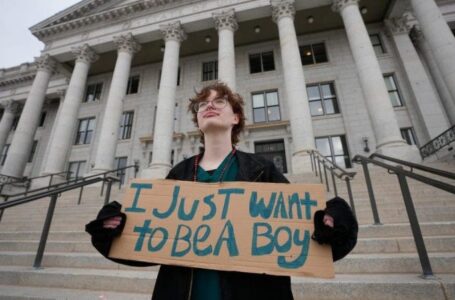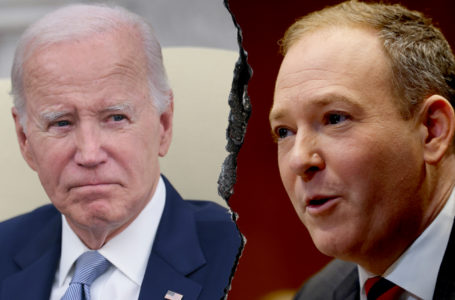GOP moves to defund hospitals that perform sex-change procedures on minors
GOP warnings about illegal voting by immigrants land — with Republicans


When House Speaker Mike Johnson (R-La.) visited former president Donald Trump at Mar-a-Lago earlier this year, one of his desired outcomes was to bolster his wavering leadership position. He didn’t exactly get what he wanted; soon after Johnson touted Trump’s support, the former president told reporters that Johnson’s fate was still up in the air.
But Trump got what he wanted, which was Johnson’s commitment to focusing on a new — and almost entirely imaginary — threat to America’s elections.
A few weeks later, Johnson stood outside the Capitol with a phalanx of Trump supporters and allies in the president’s effort to overturn the results of the 2020 election to promote a new piece of legislation. Its focus? Illegal votes cast by noncitizens.
Reporters pointed out to Johnson that there was no evidence this happened to any significant degree, a point that Johnson couldn’t rebut. Still, he insisted, “we all know intuitively that a lot of illegals are voting in federal elections, but it’s not been something that is easily provable.” So he and his allies pressed on, repeatedly claiming that this “intuitive” problem existed and demanded a resolution.
For Republicans generally and Trump specifically, it’s easy to see the political appeal. The contrived issue combines the right’s interest in centering the presidential contest on immigration with Trump’s insistences that our elections are under attack from fraud. And it’s easy to disparage Democrats for opposing a law that makes noncitizen voting illegal — even though it already is.
Polling conducted by Ipsos last month shows that the idea that immigrants in the country illegally will cast invalid ballots this November hasn’t gained much traction; only a third of Americans believe that’s likely to happen. But a third is a lot — and that third is made up heavily of Republicans. Within Trump’s and Johnson’s party, nearly two-thirds say this threat is serious.
It’s useful to consider that in light of other recent polling from Ipsos, conducted for ABC News. It determined that about two-thirds of Americans believed that Joe Biden’s 2020 election was legitimate — though only a third of Republicans said that it was.
Since ABC News first asked about the legitimacy of 2020 in January 2021 (soon after the Capitol riot), views of Biden’s election haven’t changed much. Then, about 30 percent of respondents said he wasn’t legitimately elected. Now, about 30 percent still do.
Other polling shows a similar pattern. CNN, for example, has repeatedly asked not only whether Biden’s election was legitimate but whether Americans felt that there was solid evidence to suggest that it wasn’t. The percentage of Republicans who say the election was illegitimate has been consistent even as the percentage claiming that there’s solid evidence has fallen. But it was still the case in August 2023 that 4 in 10 Republicans say solid evidence exists that the election was illegitimate.
Again, that was in August 2023, more than 30 months after the 2020 election. Thirty months, mind you, in which Trump and his supporters worked feverishly to find any such evidence, without luck. It’s simply a belief either that debunked or insignificant claims are valid or that non-debunked evidence exists out there somewhere, awaiting discovery by objective observers.
They knew intuitively that the election was illegitimate, you might say, but it’s not been easily provable.
So we have this new idea, one bolstered by incessant reinforcement from Republican officials and misleading campaigns by their right-wing allies. And it is working, convincing Republicans that immigrants in the country illegally — and therefore presumably trying to stay off the government’s radar — are going to risk their security to be one of perhaps as many as 160 million votes cast across the country.
Trump’s recent pledge to prosecute election “cheaters” should be considered in light of this issue. His base is primed not only to reject an unfavorable outcome in November but to see immigrants as a culpable party in his defeat. It’s a belief that Trump and Johnson and others have inculcated not because it’s a real problem but because by doing so, they think, they increase the odds of retaking the White House.
One way or another.











